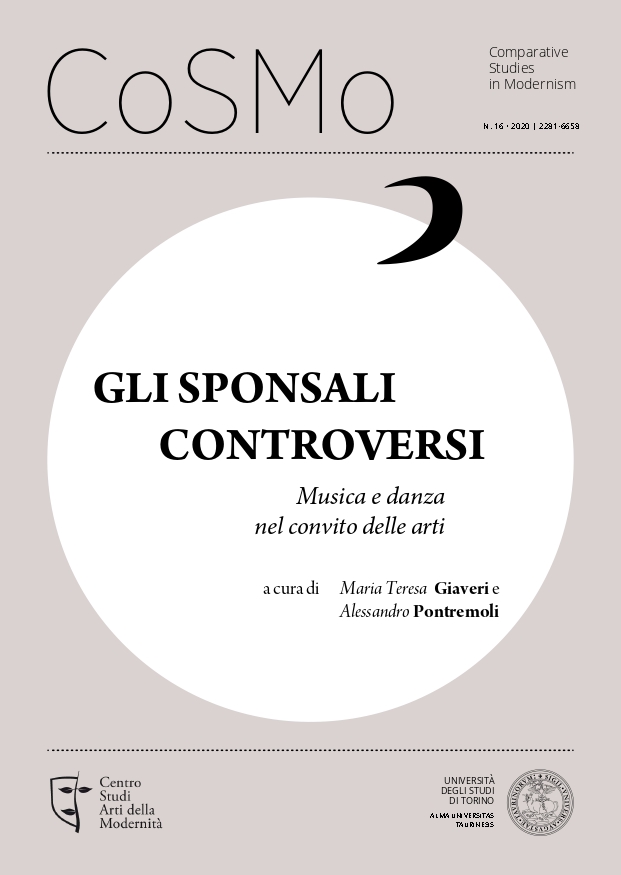“Une partie essentielle du spectacle”: The Role of Dance in Turin’s feste teatrali of the Latter Half of the Eighteenth Century
DOI:
https://doi.org/10.13135/2281-6658/4632Keywords:
18th-Century Feste teatrali, 18th-Century Ballet, 18th-Century Opera, La vittoria d’Imeneo (G. Bartoli, B. Galuppi, 1750), 18th-Century TurinAbstract
From La vittoria d’Imeneo, staged at the Teatro Regio in June 1750, by Giuseppe Bartoli and Baldassare Galuppi, to the moment when the striking French events of the end of the century upset the international chessboard, the festa teatrale was the genre most often used in Turin for commemorative events. Feste teatrali were used to solemnize the visits of foreign princes and sovereigns as well as celebrate the dynastic ties that the Savoy monarchy managed to forge with the main European courts through music. A representation of sovereignty and an instrument of consensus par excellence, this type of opera is a fertile ground for those who intend to study curial politics and its ritual practices; from a theatrical and musical point of view, it also offers many ideas for investigation, one of which concerns the constitutive and structural role of dance.
Downloads
Downloads
Published
Issue
Section
License
Authors keep the copyrights for their work and give the journal the work’s first publication copyright, which is at the same time licensed under a Creative Commons License – Attribution, which in turn allows other parties to share the work with an acknowledgement of the work's authorship and initial publication in this journal.
Content Licence

You are free to copy, distribute and transmit the work, and to adapt the work. You must attribute the work in the manner specified by the author or licensor (but not in any way that suggests that they endorse you or your use of the work).
Metadata licence

CoSMo published articles metadata are dedicated to the public domain by waiving all publisher's rights to the work worldwide under copyright law, including all related and neighboring rights, to the extent allowed by law.
You can copy, modify, distribute and perform the work, even for commercial purposes, all without asking permission.






